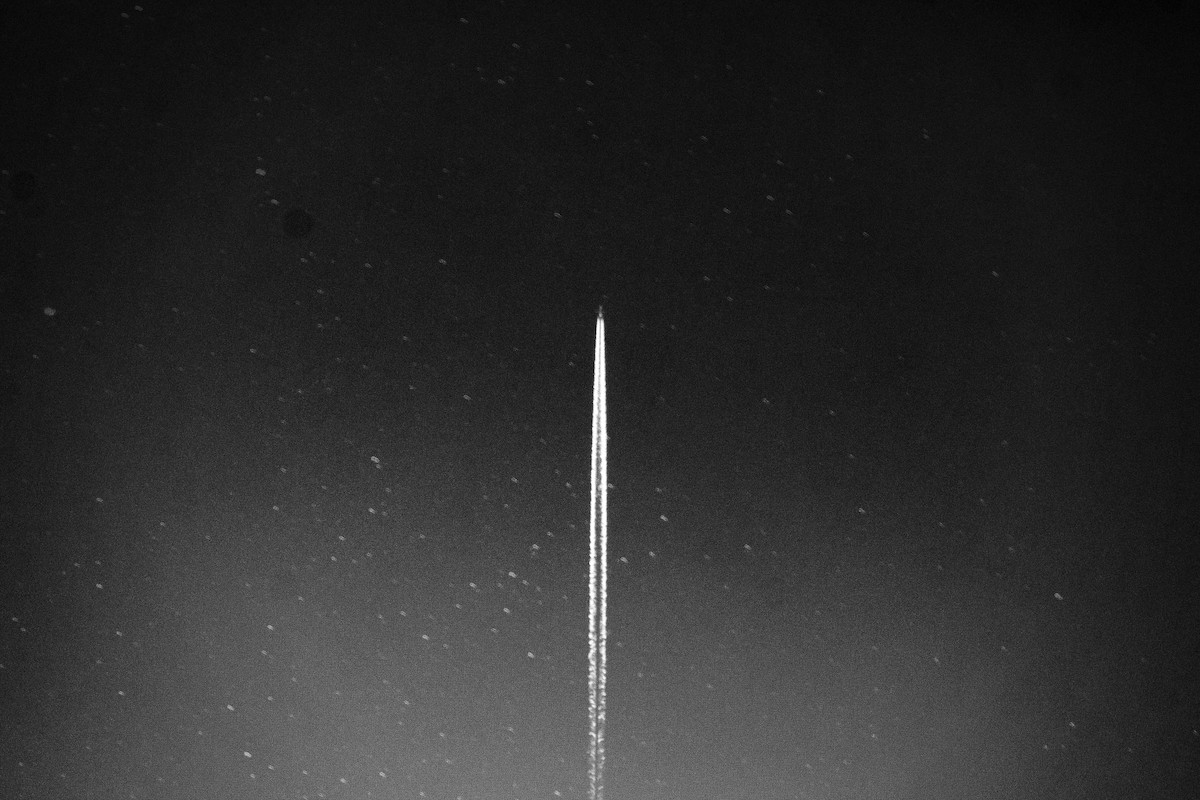From inside of the spacecraft, his daughter’s voice sounded abnormally shrill, and it put up his hackles immediately. She thumped against the exterior. “Dad. Please get out of there.”
He turned away and stared out the glass window panel at the front.
He could see pieces of the exhibit lit from below, an exhibit that had been designed around him, to tell his life story. His and that of his crewmates.
Nobody’d shouted at him from outside the spacecraft before. Before, through the tons of titanium and ablatives, all he’d heard was takeoff, and that was more sensation than sound. A feeling that tripped him awake just as he was falling asleep. And then, when they reached orbit, breathless silence. Certainly, there had been nobody out there to call to him.
An announcement he couldn’t hear well came over the speaker system. He clutched the steering levers and sank further into his seat. Outside, someone yelled into a walkie talkie.
“Okay, Dad. I’m coming in.”
He paused, and she took the chance while she had it. In a moment the door opened. She clambered in, tripping over herself and landing in a chair. Behind her, through the crack in the door, he could see the crowd growing, employees roping the area off, suited men rolling in on golf carts.
“I’ll be your copilot,” she said, and stabbed at a button. She jumped when it clicked, as if this thing still worked. “Where are we going? Mars? I’ll play along. What’s the mission?”
“No mission.” This old thing couldn’t handle it. The machine burned through the stratosphere like Wormwood, but time had eaten through it and left it as a shuck on a platform.
“No mission?” she asked. “Then what are we doing here?”
“I’m sitting. You’re sticking your nose in.”
“Well, can you blame me? The museum staff are losing their minds. This is a very expensive artifact, Dad. The maintenance is a nightmare, and you just climbed in wearing boots.”
“I was in charge of the maintenance,” he huffed. He was getting riled. “If it weren’t for me, it wouldn’t even be in here. I could—I could take a crap in here if I wanted.”
“Don’t do that. Listen, what’s going on? Do you want to get out of here and go talk? We can go to the deli. I’ll get you a pastrami on rye, set the kids loose in the playground.”
The intercom sounded. His daughter flitted a panicked eye to the door. When did he become this elderly father, to be placated by his children with sandwiches and museum trips?
“Andy died last Tuesday,” he said. He scratched his forehead.
“Andy?” Then her expression cleared. “Oh, Andy. Dad, I’m so sorry. Was he sick?”
He didn’t know. They hadn’t spoken in years. Andy was in those pictures with him, two scruffy, handsome young men in silly space suits. They’d gotten along as much as they had to but kept it brief. Andy didn’t have much sense of humor, took things a little too literally, and always found a way to work his theology into things. No hard feelings, but neither of them made any effort to keep in touch. It always seemed like there’d be another chance.
But there wasn’t. Andy died. Now, there weren’t any more like him. Feet planted in the gray-gravel desert of that alien rock, they’d hung upside down above the earth, and with their fresh eyes saw the planet for the first time.
“Can we talk about this over coffee or something?” she said. “Do you—can I do anything?” She smiled, then her face turned sad. “Please, Dad. You don’t want them to drag you out of here. You’re too dignified for that.”
“They wouldn’t,” he barked.
“You’re right.” She sighed. “They’re all scared of you. Maybe they’ve heard you bite.”
“I don’t bite.”
“You always bit me.”
“Those weren’t real bites. I was just eating your toes, remember?”
“Maybe they don’t want their toes eaten.”
“Sure, sure,” he said. “But they step foot in here, they better be prepared.”
His daughter smiled and he chuckled, though it came out a cough. She put a hand on his. Her diamond was obscene on her thin finger.
“Please,” she said.
“Fine,” he said. “I admit defeat.”
“You can never be defeated, Dad,” she said, already in a squat.
She helped him stand. “You know, it looks different in here from how I imagined. You never really told me about it.”
“You never asked,” he said, as if it mattered. He pulled down his hat and prepared to face the crowd.
Olivia Robertson is an Art History graduate student with delusions of literary grandeur. Her short story “Vegetable” was published in the Summer 2020 edition of Open Ceilings.

